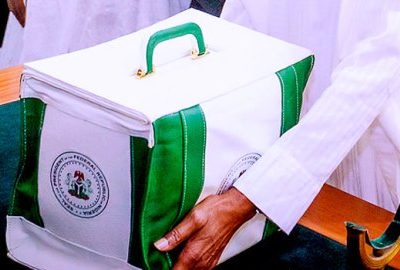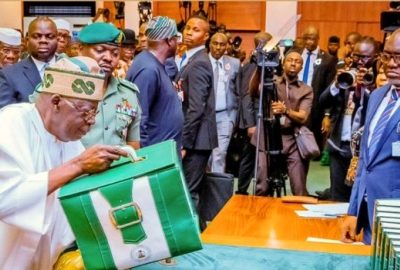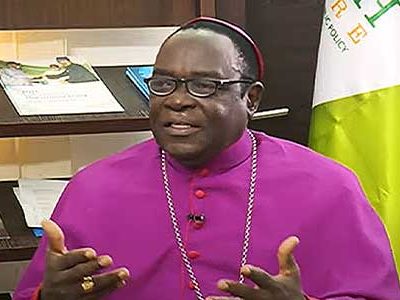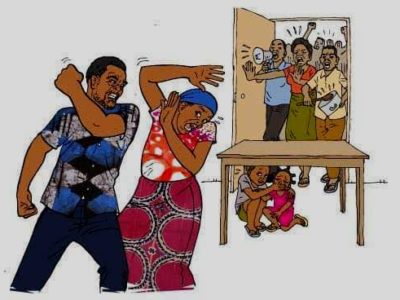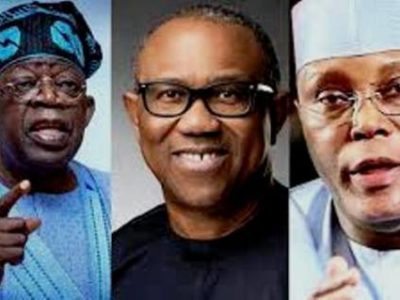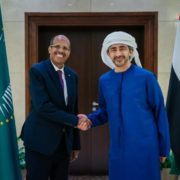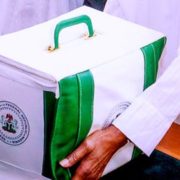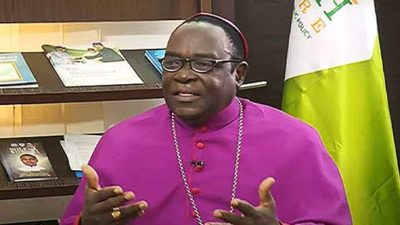By Austin Okere
Reading about the post-2023 Presidential election discourse in Nigeria is exasperating. The politicians have successfully steered the discourse away from logical discussions about our country’s development to emotional and divisive topics such as tribalism and religion. This tactic has been used to maintain the status quo by dividing the population. People are willing to overlook the truth and blindly follow their tribal or religious affiliations. We have all been manipulated and will continue to be until we can break free from this narrow-minded way of viewing national issues.
History has taught us that following the paths of ethnic and religious bigotry leads us to no viable destination. The Rwandan Genocide serves as an example of the tragic outcome of such paths. The genocide against the Tutsi in Rwanda, also known as the Rwandan genocide, occurred during the Rwandan Civil War between April 7 and July 15, 1994. Over the course of about 100 days, armed Hutu militias killed members of the Tutsi minority ethnic group, as well as some moderate Hutu and Twa. The most widely accepted scholarly estimates put the number of Tutsi deaths between 500,000 to 662,000.
“History has taught us that following the paths of ethnic and religious bigotry leads us to no viable destination. The Rwandan Genocide serves as an example of the tragic outcome of such paths.”
The Rwandan Patriotic Front (RPF), a rebel group mainly composed of Tutsi refugees, invaded northern Rwanda from Uganda in 1990, sparking the Rwandan Civil War. The conflict continued for three years without either side gaining a decisive advantage. In an attempt to end the war peacefully, Hutu President Juvénal Habyarimana signed the Arusha Accords with the RPF on August 4, 1993. However, Habyarimana’s assassination on April 6, 1994, created a power vacuum and ended the peace accords. Genocidal killings began the following day, initiated by majority Hutu soldiers, police, and militia who murdered key Tutsi and moderate Hutu military and political leaders. Despite the worldwide shock caused by the scale and brutality of the genocide, no country intervened to forcefully stop the killings.
I cite this example because of my belief that if we continue down the path of ratcheting up the caustic rhetoric that have pervaded the polity in the recent weeks, a similar outcome may not be far-fetched.
On the occasion of the one-year anniversary in office of Prof. Charles Soludo, Anambra State Governor, on March 19, 2023, Former Nigerian President, Olusegun Obasanjo condemned the anti-Igbo sentiments in Nigeria, which he called “Igbophobia”. In this context, It is important to recognize that the following constructs should not be viewed as interchangeable: Peter Obi, the Labour Party, the Obidient Movement, and the Igbo.
It seems that some individuals are mistakenly perceiving them to be one and the same, but this cannot be further from the truth. Here are the reasons why:
- Although Peter Obi is the presidential candidate of the Labour Party, the party is not defined by any single individual. It is a diverse party with members from different tribes such as Hausa, Fulani, Yoruba, Igbo, and others who all share the party’s goal of actualising a mandate which they believe has been denied them by a flawed electoral process through legal means. It is unfair to single out the Igbo people in this regard.
- The Labour Party includes people who are not Igbo, just as there are Igbo individuals in other parties besides the Labour Party. Die-hard Igbo supporters can be found in the All Progressives Congress, Peoples Democratic Party, and other parties, just as die-hard supporters of other tribes can be found in the Labour Party. The leadership of the Labour Party cuts across the diverse tribes in Nigeria.
- The Obidient Movement includes individuals who are not necessarily associated with the Labour Party, such as Benue State Governor Samuel Ortom, a PDP Stalwart, Aisha Yusufu, the renowned activist, and many others. This movement represents the desire for change in Nigeria and a departure from the status quo that has led the country to this point. The majority of the youth population identifies with this movement, and it includes people from all tribes. During the #EndSARS protests, they spoke out for better governance and were urged to become more engaged in the political process, which they have done.
- The Igbo people are an integral part of Nigeria, just like the Yoruba, Hausa, Fulani and other tribes. They transcend Peter Obi, the Labour Party, and the Obidient Movement. Failing to recognize these distinctions could lead to a dangerous blanket hatred against the Igbo people.
There are good and bad people in every tribe. Removing all Igbo individuals from Nigeria would not solve the country’s problems, just as removing individuals from any other tribe would not either. The current atmosphere of suspicion and fear between tribes is concerning. According to Saint Thomas Aquinas “Fear is such a powerful emotion for humans that when we allow it to take over us, it drives compassion right out of our hearts.”
It is not uncommon for election results to be disputed if there is a perception that the process was unfair. In such cases, the electoral laws provide for aggrieved parties to seek redress through the electoral tribunals and the courts.
We can draw valuable lessons from the examples of Kenya and Ghana. In Kenya, the Supreme Court nullified the results of the presidential election, while in Ghana, the Supreme Court upheld the results. These two cases demonstrate how electoral disputes can be resolved through legal means, and how important it is to have independent and impartial courts that can provide oversight and ensure the integrity of the electoral process. It is important for all parties to respect the rule of law and abide by the decisions of the courts, regardless of whether they agree with the outcome.Top of Form
On September 1, 2017, the BBC news site reported that the Supreme Court of Kenya cancelled the country’s presidential election held on August 8, 2017, citing irregularities, and ordered a new election to be held within 60 days. The incumbent president, Uhuru Kenyatta, was declared the winner by a margin of 1.4 million votes by the election commission. However, the opposition leader, Raila Odinga, accused the commission of corruption and demanded resignations and prosecutions. President Kenyatta respected the court’s decision but called the judges “crooks.” The annulment of an African presidential election as a result of an opposition court challenge appeared to be unprecedented. The Chief Justice, David Maraga, said that the election was not conducted according to the constitution and declared it “invalid, null and void.” The vote had raised fears of major political violence, as happened after a disputed poll in 2007. President Kenyatta called for calm and respect for the rule of law.
In contrast to Kenya, Ghana’s Supreme Court on March 04, 2021 upheld the victory of President Nana Akufo-Addo in the December 7, 2020 presidential election. Despite allegations of irregularities made by his opponent, former President John Mahama, the court found no merit in his claims and ruled in favour of Akufo-Addo, who had received 51.59% of the vote to Mahama’s 47.37%. Although Mahama accepted the court’s decision, he expressed disagreement with the trial process and ruling. Notably, this was only the second time that a Ghanaian presidential election had been formally contested by the losing candidate, with the previous case in 2012 involving a challenge by Akufo-Addo against then-incumbent Mahama’s victory.
“Ultimately, the success of any democracy depends on the ability of its citizens and leaders to work together in good faith towards a common goal. This requires a commitment to the rule of law, respect for human rights, and a willingness to engage in constructive dialogue.”Top of Form
From the above examples, it is important for any democracy to have a transparent and fair electoral process that is free from irregularities and malpractices. In cases where disputes arise, it is important to have an independent judiciary that can adjudicate such disputes based on the law and the evidence presented, rather than on political considerations.
Ultimately, the success of any democracy depends on the ability of its citizens and leaders to work together in good faith towards a common goal. This requires a commitment to the rule of law, respect for human rights, and a willingness to engage in constructive dialogue.
We need to pull back from the abyss. Every Nigerian should have the freedom to aspire to their greatest aspirations and the pursuit of happiness in any part of the country where they choose to live, as enshrined in our constitution. It is crucial to focus on the values that unite us as Nigerians, such as our shared history, culture, and aspirations for a better future. This can help to build a sense of national unity and strengthen our democracy. It is also important to address the root causes of the current tensions and conflicts in the country, such as social inequality, economic hardship, and political exclusion. By addressing these issues, we can build a more just and equitable society that works for the benefit of all Nigerians.
The opinions expressed here are solely my own and do not represent any institution to which I have direct or indirect ties.

Austin Okere is a thought leader, and business mentor. Currently an Entrepreneur-in-Residence at Columbia Business School, New York, Austin has also facilitated at the United States International University in Kenya and has been appointed to the Advisory Board of the Global Business School Network in Washington in recognition of his contribution to the development of business education and knowledge transfer in Africa. CWG Plc, the company which he founded has been recognised as a ‘Global Growth Company’ by the World Economic Forum and is the largest security listed in the Technology Sector of the Nigerian Stock Exchange.


